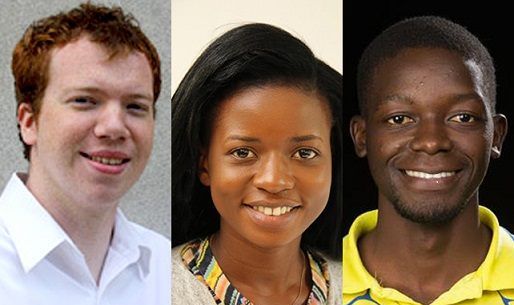CCA Expresses Concern over the Plight of Missionaries in the Philippines
 UMC Global Mission Fellows in the Philippines- Adam Shaw, Miracle Osman and Tawanda Chandiwana
UMC Global Mission Fellows in the Philippines- Adam Shaw, Miracle Osman and Tawanda Chandiwana
Upon being cognizant of the new developments regarding the cases involving three foreign United Methodist Church (UMC) missionaries in the Philippines, the CCA General Secretary Dr. Mathews George Chunakara responded that the right of foreign missionaries to freedom of movement must be respected and the government must consider the added value of the committed work of the missionaries for the people of the Philippines. He welcomed the decision of the government to deport the three UMC missionaries instead of seeing them languishing in detention.
Mr. Tawanda Chandiwana of Zimbawe, Ms. Miracle Osman of Malawi, and Mr. Adam Shaw were taken into police custody and interrogated while participating in an international peace mission in General Santos City in the southern Philippines, where martial law is in place.
Mr. Adam Shaw left the Philippines on 4 July, 2018 for the United States to reunite with his family. Mr. Tawanda was released from detention on 5 July and is on his way to return to Zimbabwe. Ms. Miracle Osman left Mindanao on 5 July to travel to Manila.
The CCA General Secretary requested the ecumenical family to continue keeping Ms. Miracle Osman in their prayers and is confident that she will be able to leave the Philippines soon.
The Executive Committee of the CCA that met at the Armenian Catholicosate of Cilicia in Antelias, Lebanon, from 1 to 4 July adopted a statement, and expressed concern on the plight of the three UMC missionaries.
The CCA General Secretary expressed appreciation to the ecumenical family, as well as to all people of goodwill in Asia and around the world, for their active roles in the campaign to get the three international missionaries out of the Philippines.
“The three missionaries are exemplars of how we Christians accompany the suffering people and live in their midst as part of our prophetic witness and accompaniment”, stated Dr. Mathews George Chunakara.










